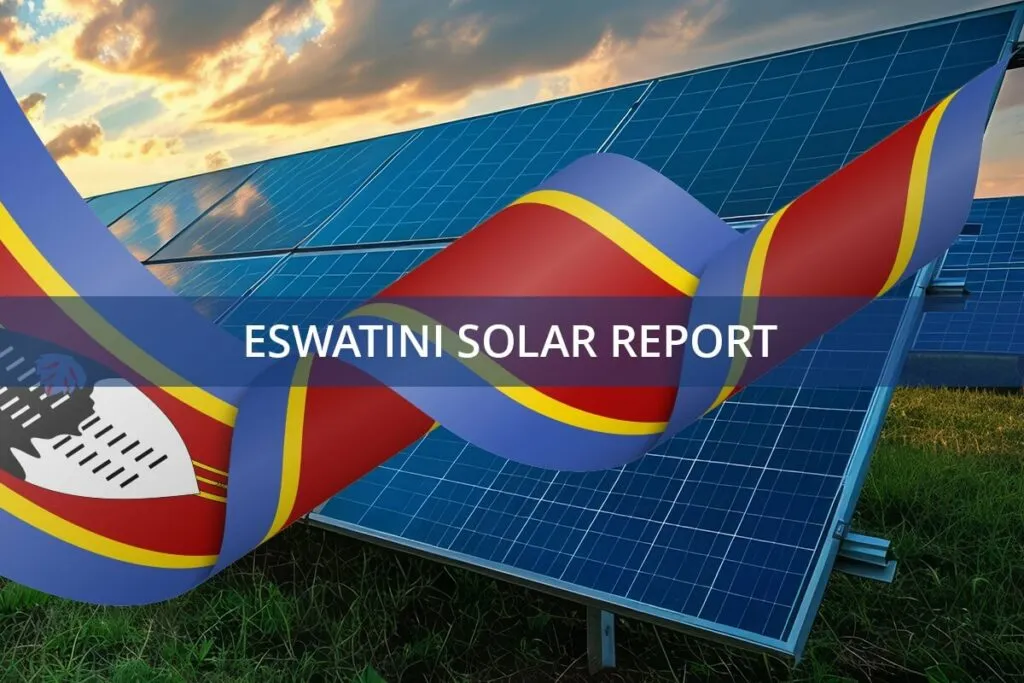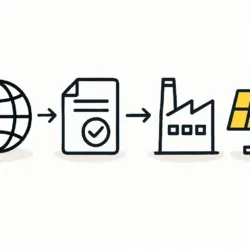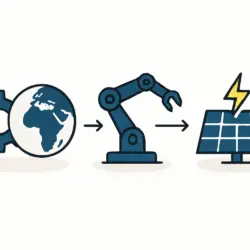The Eswatini Electricity Company (EEC) is set to significantly expand solar power access in 2025, aiming to provide electricity to over 20,000 households. This initiative is part of the company’s broader plan to enhance its solar energy offerings and promote renewable energy adoption across the country. This move places Eswatini at the forefront of a continental trend, as Africa is seeing record inflows of solar panels and a surge in utility-scale renewable projects this year.
EEC’s Ambitious Eswatini solar power Initiative
The EEC’s Solar Home Systems (SHS) programme is a key component of this initiative, designed to bring solar energy to both urban and rural areas. The programme targets households in rural communities, peri-urban areas, and densely populated informal settlements, providing them with a vital alternative to the national grid. For a developing nation, providing off-grid solutions is crucial for areas where extending traditional infrastructure is challenging and where understanding Eswatini grid reliability is key to ensuring consistent power.
The programme offers various solar energy options, ranging from basic systems for lighting and phone charging to more advanced setups that can power household appliances and even support small businesses. This flexibility allows the SHS programme to cater to different energy needs, making it accessible to a wide range of households.
Benefits of the SHS Programme for Eswatini solar power
The SHS programme is expected to have a transformative impact on Eswatini’s energy landscape. By providing affordable and reliable solar power, the initiative will reduce the country’s reliance on traditional energy sources and decrease greenhouse gas emissions. This shift towards renewable energy is crucial for meeting Eswatini’s climate goals and promoting sustainable development, aligning with global efforts to build a renewables-based economy.
The programme also includes energy efficiency and conservation measures, ensuring that households maximize the benefits of their solar systems. Additionally, the use of smart meters will allow for better monitoring and management of energy consumption, further enhancing the programme’s effectiveness.
Community Involvement and Capacity Building in Eswatini solar power
The success of the SHS programme depends on community involvement and capacity building. The EEC plans to work closely with local communities, providing training and support to ensure the long-term success of the initiative. This includes engaging local businesses and entrepreneurs to participate in the solar energy market, creating new economic opportunities and fostering innovation.
This initiative opens the door for a vibrant local industry. The government is actively encouraging this growth, with attractive policies like the Eswatini SEZ offering 0% tax benefits for solar manufacturing. Entrepreneurs looking to enter this space can explore the entire value chain, from understanding the basics of manufacturing and the required raw materials to investing in the right manufacturing machines. A detailed Eswatini solar panel manufacturing market report provides further insight into the potential of this burgeoning sector.
A Model for Other African Countries: Eswatini solar power
Eswatini’s solar energy expansion could serve as a model for other African countries looking to improve energy access and promote renewable energy. The SHS programme demonstrates how solar power can be used to address energy poverty, reduce greenhouse gas emissions, and support economic development. This local progress mirrors regional movements, such as the Mozambique energy transition, showcasing a collective push towards cleaner energy in Southern Africa.
As Eswatini continues to expand its solar energy capacity, the country will become a leader in renewable energy adoption in Africa. These national efforts contribute to a larger picture of progress, which can be seen in the broader Global Solar Report. The EEC’s ambitious plans for 2025 and beyond show that Eswatini is committed to a sustainable energy future, paving the way for a brighter and more prosperous tomorrow.
If you are an entrepreneur or investor inspired by Eswatini’s solar boom, understanding the manufacturing side is your next step. To learn more about setting up a production facility and the associated costs, enroll in our free e-course on solar panel manufacturing.



